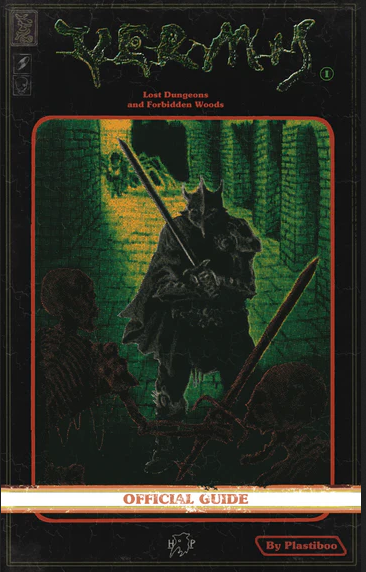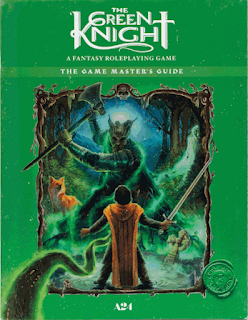Games and Spotlight
 When a group comes together to game we all want different things. Some want a story, some want a challenge, some want a social experience. When those needs are met, and more importantly when the group aligns and interacts in a way when they are met for as many people as possible, that's when you have a great game. Much has been said and written about how this happens- but don't worry, I'm here now to solve the entire thing for all time.
When a group comes together to game we all want different things. Some want a story, some want a challenge, some want a social experience. When those needs are met, and more importantly when the group aligns and interacts in a way when they are met for as many people as possible, that's when you have a great game. Much has been said and written about how this happens- but don't worry, I'm here now to solve the entire thing for all time.All games are unified by certain principles. The principles that some people think are completely anathema to certain playstyles are actually not, they just require more thought or more communication about how the mechanics function as part of the game. Now a game like Ten Candles where burning and putting out candles are the methods of marking time and determining the story's stakes are very foreign to drawing lines on graph paper and rolling funny dice, but there's no reason you couldn't have a hell of a good time lighting candles for some dumb experimental mechanic while you play D&D. That's part of the fun of roleplaying; just go ahead and try any goofy shit you want and see if it works. You'll probably remember a session like that for a long time.
Story, game, and social interaction are probably the 3 main reasons we play games. Pushing story and social interaction to the front (via mechanics) doesn't necessarily come at the expense of the game, but it usually does. Spotlight is a story and social interaction focused mechanic. It can actively obviate more game- and challenge-oriented principles in order to facilitate players getting to be the focus, to synergize with their character, or to give them narrative control.
You can do spotlight a bunch of different ways:
- Run the game however feels natural and let players drive the spotlight according to their taste
- The DM reads the table and checks in with players who haven't had much time in the spotlight, or maybe considers designing aspects of adventures around giving players equal opportunities
- Mechanics which encourages or requires sharing of the spotlight
- Games focused entirely on the spotlight and how it's shared, and that's how the story is formed and game mechanics and strategy are a much less prominent aspect
These are just a few, but I think they represent a spectrum. OSR gamers are likely familiar with the first two, and have probably played games with some kind of mechanic at one point or another. The fourth would likely be something a full-on grognard would fucking hate.
I've had good experiences with all of these types, depending on how I'm feeling. I tend to find myself more consistently enjoying the game as a social experience in the latter two situations, but I'm also inculcated to roll dice and swing battleaxes. Often I find myself in the spotlight, because I love to laugh, cause chaos and wring the most out of opportunities for exploration and experimentation. Sometimes I am oblivious to others, and they don't have as much opportunity for the spotlight. Other times, (admittedly more rarely) I'm burnt out and want to play but don't have the energy to put myself front and center when I'd like or when it's necessary for the party. It's nice to be able to play organically, but the option to use mechanics to make working in the spotlight easier is very helpful.
Here are two examples of how spotlight has worked in games I've played in. One is more traditional adventuring & dungeon crawling, and the other a more narrative-focused "storygame":
1. On A Red World Alone (this is the weekly g+ game run by Nick Whelan, the author of the piece I'm responding to). In his game I actively pursued the spotlight to heist a giant robot from a wizard, free mutant slaves, and build a network of hospitals and a secret snake cult to destabilize the factions that oppressed mutants across the Dome. Other players didn't always like it, didn't speak up, and didn't have as much fun as they could have at times, although plenty of fun came of it as well. As a Specialist with a lot of skills, I did a lot of shit: I invented rovers and other devices, stealth attacked things with remarkable effectiveness, and got a lot of spotlight. If you think about it, the skills mechanic the Specialist uses was giving me the spotlight in a lot of cases, or I could choose to take it by suggesting an action using my skills, which was a unique advantage I had over other players. A spotlight mechanic was at play, but more subtle than storygame mechanics.
Our Fighter, on the other hand, didn't get nearly as much to do: he was better at hitting when he rolled dice, but I also had a motherfucking Uzi and could wreck people from stealth. In my own LotFP houserules, I invented the Combat skill for Fighters to give them a way to execute a move cinematically every once in a while and gain unique advantages than just a point of attack bonus each level. My goal was explicitly to increase spotlight for Fighters. The Fighter from that campaign actually really liked it when he read it, because he thought it was a good solution to what he was experiencing.
When I tried to course-correct, I took a backseat and missed out on some things I really wanted to do, even sitting out the epic confrontation with my own robot when it was retaken by the wizard, which is probably a thing I would have most wanted to do.
We pursued objectives. Each player had their own. We used strategy and tactics to do so. We weighed our equipment choices, discussed our best moves each turn, and our die rolls mattered to our success and failure. The spotlight, however, was something that was somewhat clumsy and none of us intuited how to balance it whilst we were engaging with random encounters and quests for experience.
2. Inspectres, which is basically a Ghostbusters/Ghost Hunters storygame. It only uses d6 dice, and it's generally very easy to succeed at actions. There's no tactical aspect, no fixed turn order, no item stats, and our campaign was mostly about making jokes. It's much less strategic. We had no long term objectives, only a "job-to-job" type of structure (not dissimilar to a lot of traditional rpgs, though).
We pursued and achieved an objective. I used a game mechanic with variable stakes based on its success/failure, and made a call which resolved the stakes and was in line with what we wanted and needed to do- strategy. I could have done some dumb bullshit with my spotlight time, but it reinforced the story and took it in an interesting direction instead.
Quoting from Nick's article, "Sometimes people will step on one another’s toes, but if you’re not playing with assholes, folks will generally try to be respectful of one another. If you are playing with assholes, you have deeper problems than any rule can fix. This attempt to use rules to protect oneself from the scary variable of “other people” is a consistent feature of some TTRPG circles, and I find it baffling"
This is a mindset prevalent in the OSR that I don't like- "these problems don't happen if you play with the right people". I think it's willfully ignorant of the fact that mechanics do have an impact on how we interact- otherwise we wouldn't be so loyal to our nostalgic game roots. It's a dismissal of the facts that Clerics suck because they have a proscribed role, Thieves used to blow because their skills were impractically low, Magic-Users having only 1 spell per day made them basically useless, Fighters have a limited skillset, etc. We've since done a lot to fix those problems, and it results in those classes being more useful to a group and more fun to play- and being in the spotlight. Spotlight isn't something that encourages players to be assholes, it's something that gives them opportunities to affect the game in the way they want. Every game has a stance on spotlight, and we all actively try to engineer them to fit our preferences.
Spotlight is an aspect of games just like die rolls are. Some refs prefer less, and some more. Having a turn order gives each player spotlight. Marching order gives each player spotlight toa varying degree. Checking for traps, casting spells, and healing all shift the spotlight (although healing is a shitty, perfunctory turn in the spotlight). These aren't just up to the players to figure out, the game has it built in. And each group tweaks their game to fit their preferences.
There is no way to divorce the concept of spotlight from games, at least that I can see. If you feel differently, go ahead and let me know. I'm interested to see how everyone does it differently.









Comments
Post a Comment